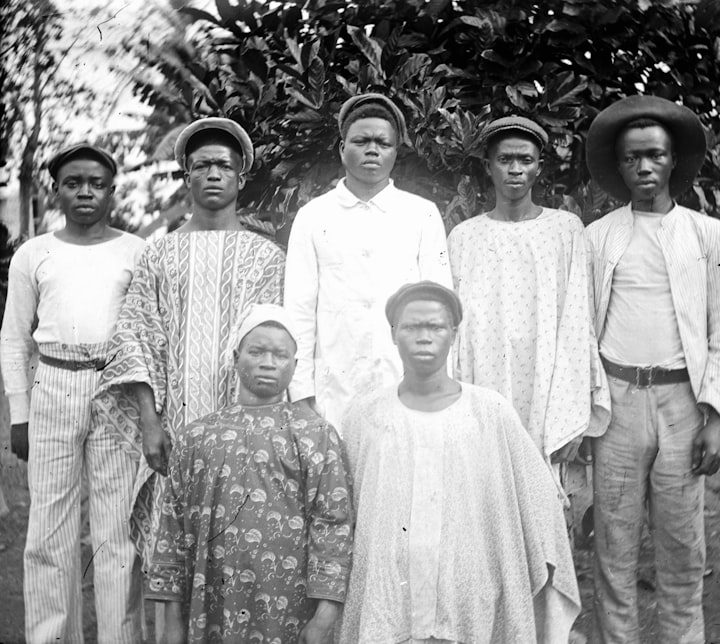Nikole Hannah-Jones, The 1619 Project, and the uncertain future of American History
Anti-Black racism is nothing new to African-Americans

To many African-Americans, the kind of racist flex being unleashed against the Pulitzer Prize-winning, New York Times journalist, and creator of The 1619 Project, Nikole Hannah-Jones, is by no means our first rodeo.
Hannah-Jones’s numerous detractors, including notable historians and scholars, fellow journalists, news outlets, and a radicalized army of social media trolls and bots armed with keyboards and disinformation (many of whom, I suspect, have not even read The 1619 Project) have taken a well-worn page out of a centuries-old, white supremacist playbook in an attempt to put an “uppity Black woman” in her place.
Because make no mistake ladies and gentlemen, we are at WAR!
A not-so-civil war of rampant hyperbole, reckless conjecture that leads to ill-formed opinions, where well-documented facts and rigorous scholarship are routinely sacrificed on the altar of creative truth-telling.
The poison pens of dissent have been deployed on search and destroy missions in order to take down The New York Times Magazine’s bold and urgent project since its publication in August of 2019. With itchy trigger fingers, they aim their fact-checking crosshairs not so much at the alleged historical inaccuracies of the project’s content, but at a brave Black woman who had the courage to spearhead a project using a powerful multimedia platform to openly and unapologetically challenge the crumbling, whitewashed narrative of American exceptionalism.
But thinly veiled racism is par for the course in a post-Trump America given the enormous threat that Nikole Hannah-Jones poses as an educated, highly intelligent Black woman, who has managed to rip one of many band-aids off of America’s gaping, racially inflicted, festering wounds and applied a balm of extensively researched academic truth in the hopes of changing how history is taught in this country amidst a growing racial divide.
Still, complete wastes of oxygen like George Will has recently condemned The 1619 Project as “malicious” and “historically illiterate.” It is this type of white elitist gatekeeping and vitriolic jargon that not only attempts to discredit Nikole Hannah-Jones, a multiple award-winning fellow journalist but is also meant to disqualify her as a Black woman who should know better than to question the sacred cow of Amerikkka’s founding history, which, as I said before, is nothing new.
Thomas Jefferson used a similar racist gatekeeping tactic in his oft-quoted rebuke of the poet Phillis Wheatley — the “first African-American author of a published book of poetry” — as follows:
“Among the blacks is misery enough, God knows, but no poetry. Love is the peculiar œstrum of the poet. Their love is ardent, but it kindles the senses only, not the imagination. Religion indeed has produced a Phyllis Whately [sic]; but it could not produce a poet. The compositions published under her name are below the dignity of criticism.”
I firmly believe that Thomas Jefferson was speaking as a privileged white man who was heavily invested in peddling the illusion of Black inferiority and not just because he was profiting greatly from it — via the brutally violent and often deadly institution of chattel slavery. But Jefferson’s anti-Black racist shade was typical of white slaveowners who desperately needed to uphold the myth of their self-proclaimed superiority for fear that the enslaved would not only see themselves as their equals but that they would be inspired to collectively seek retribution against their enslavers, which they often did regardless.
And that same fear — the fear of the truth, of replacement, of taking over, of revenge — remains just as potent today in America as it did back then.
Banning Critical Race Theory or removing certain books from public school curriculums across this nation will only serve to amplify the marginalized voices of the poets, the journalists, the writers, the historians, etc…who continue to pull back the curtain on a country that has squandered every opportunity to atone for its ongoing racist legacy.
In all honesty, Black women have essentially (and literally) birthed this nation into existence with their blood, sweat, and tears giving life to a vast, captive labor force without which there would be no America. So centering chattel slavery as the main driver of generational wealth and economic dominance the world over, leading to opportunities including but not limited to expansion across Indigenous territories and military growth is a far more accurate version of American history than the one I was taught in public school.
The version I was taught (more or less) was a highly sanitized, soft-serve trivialization of slavery — a nothing-to-see-here, historical fender-bender offering travel and unpaid internships to Africans in an ambitious start-up that white men would ultimately take all the credit for, creating such a successful business model which would become the envy of the international community. And I may have exaggerated a little to make a point.
Fortunately, Nikole Hannah-Jones and many others keep gathering the breadcrumbs left by our ancestors and converting them into important works so that we may be able to arm ourselves with knowledge, to have difficult conversations, to learn the uncomfortable truths, because the future of America’s history is at stake.
About the Creator
Ice Blerd Ben
I'm a writer with a BA in multimedia journalism and a Blerd who believes being a Black nerd is very cool. Coffee is my drug of choice and to squash all the rumors and gossip I"ve never dated Janet Jackson or Halle Berry at the same time.






Comments
There are no comments for this story
Be the first to respond and start the conversation.